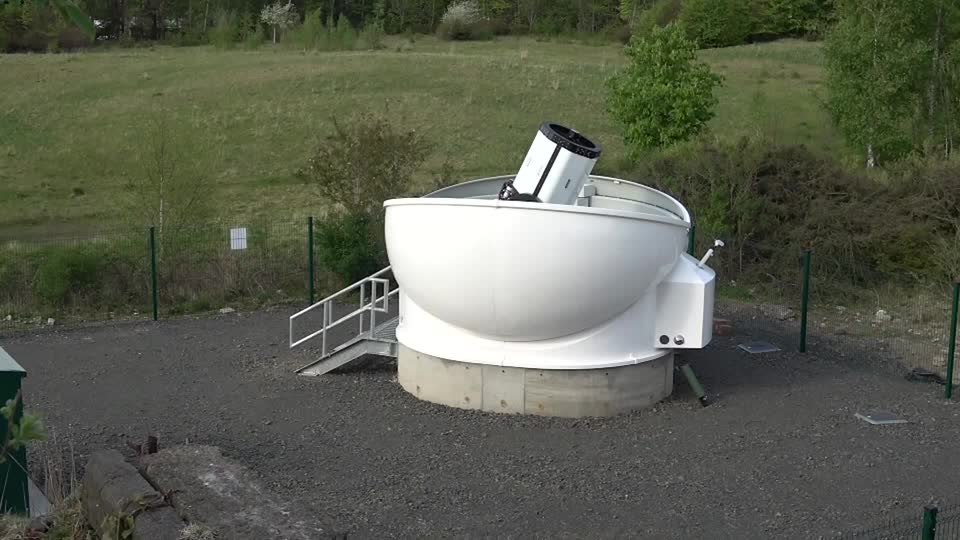STORY: This observatory telescope has been repurposed to combat cyber threats.
:: Edinburgh, Scotland
Located at Heriot-Watt University, it’s the UK’s first facility dedicated to quantum key distribution – or QKD – via satellite.
By creating virtually unhackable encryption keys, it aims to help protect sensitive data in banking and healthcare, and in turn, bring down the UK’s $36 billion annual cybercrime cost.
The $3.3 million Quantum Communications Hub Optical Ground Station – or HOGS – uses advanced laser systems to communicate with satellites, leveraging single-photon technology for ultra-secure data transmission.
Ross Donaldson from the university’s Institute of Photonics and Quantum Sciences is the project lead.
He says the technology is crucial as investments into quantum computing ramp up.
“There’s certain algorithms that those quantum computers could run that would be able to hack into secure messages that are sent today and those are sent in the future as well. So, by not being able to secure ourselves now, we leave ourselves open to encryption breaking later on.”
Donaldson says the facility will support the launch of a CubeSat later this year to demonstrate space-to-ground QKD.
“The SPOQC mission, which goes up later this year, we are working with international partners to have it connect to other places in the world and then also connect with our ground station here. So essentially creating our own quantum internet across the world.”
That could help connect future quantum computers and boost cybersecurity by enhancing defences to hacking and evolving threats, Donaldson added.
British companies, public bodies and institutions have been hit by a wave of cyberattacks in recent years, costing millions and often causing months of disruption.
The British government has warned all UK companies to treat cybersecurity as an “absolutely priority.”
HOGS is funded by the UK National Quantum Technologies Programme and supports a UK initiative to develop secure quantum communication networks called the Integrated Quantum Networks Hub.
Gerald Buller is the hub’s director.
“The benefit to global business will be there’ll be alternative approaches to encryption.” // “Where I think most people would see alternative forms of encryption, quantum-based encryption techniques would be in high-value transactions or government communications, for example.”
Last year, Britain announced several new quantum research hubs to advance research into healthcare, cybersecurity and transport as it looks to become a quantum-enabled economy by 2035.
